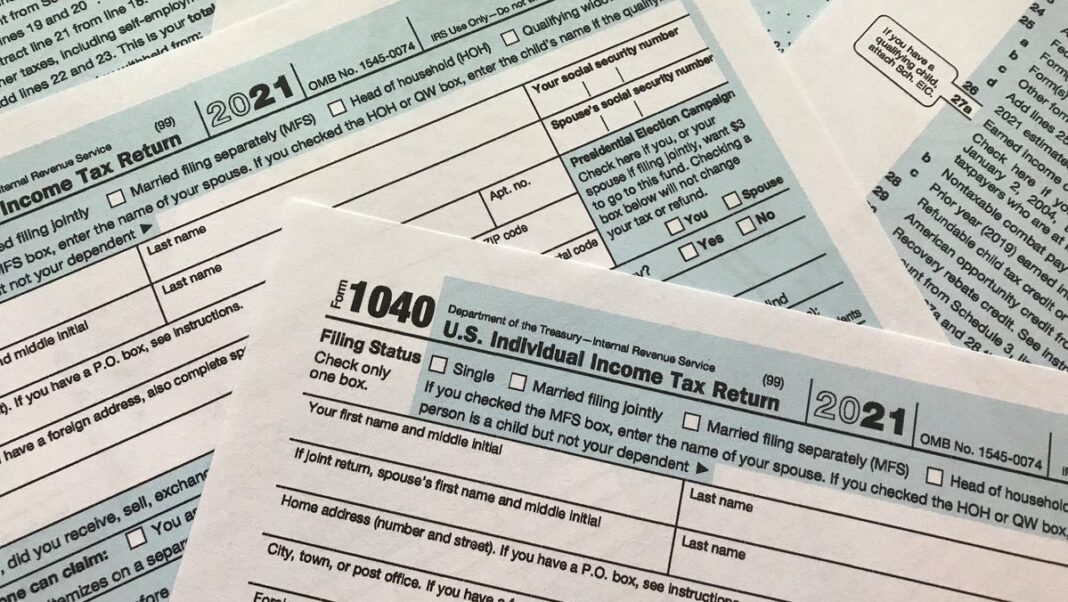Should I just toss those old papers in my basement? We consulted accountants.
While you were rummaging through your basement for festive decorations, you might have uncovered boxes filled with documents from years gone by. This might have led you to wonder, “Is it okay to just throw these out?”
Organizations and government entities usually have policies on how long to keep documents, but many individuals don’t follow any specific guidelines.
Common advice suggests that we hold onto important paperwork for seven years, primarily due to tax-related issues that are a bit foggy in our memories.
If you have paper records dating back to the Clinton Administration, it might seem like you can safely dispose of them.
But is that applicable for everything?
We asked accountants and tax professionals these questions, and here’s what they shared.
Tax returns
Let’s first discuss tax returns, which are essential documents that show we’ve met our annual obligations to the government.
“The IRS can audit you for any reason within three years of filing your return,” explained Paul Mendelsohn, a CPA from Livingston, New Jersey.
Furthermore, if you file late, submit an amended return, file a fraudulent return, or fail to report at least 25% of your income, the IRS has a longer time frame to act.
The rationale for the seven-year guideline is that the IRS typically has six years to audit a return if there are significant discrepancies, like unreported income. The seventh year serves as a safety net.
However, there can be situations where even seven years isn’t adequate.
For instance, “There’s no statute of limitations for fraudulent tax returns or failing to file one entirely,” said Scott Brillhart, a CPA in Chicago.
If you never submitted a tax return, the timeline never starts, meaning you would have to retain all records indefinitely.
In summary, keep your tax returns for a minimum of seven years, or even longer.
Tax supporting documents
The documents you submit with your tax return, such as W-2 forms, 1099s, and receipts, “can typically be discarded after seven years,” according to Gallegos.
In reality, for most people, you won’t need these supporting documents for longer than three years, Mendelsohn noted.
Therefore, at the very minimum, retain these records “for three years from the date you filed your original return, or two years from when you paid the tax, depending on which is later,” he added.
In summary, keep supporting tax documents for at least three years, and ideally for seven.
Bank and credit card statements
Boxes can quickly fill up with old bank and credit card statements, pay stubs, and other financial documents.
These “can usually be shredded after one year, unless you need them for tax documentation,” said Mendelsohn.
Certified financial planner Michelle Crumm, based in Ann Arbor, Michigan, recommends keeping bank and credit card statements for a full seven years.
“It’s wise to maintain a digital copy in case you need access later,” she advised.
Summing up: Retain bank and credit card statements for at least one year, and preferably for seven.
Property and investment records
This is an area where the seven-year rule has an extension. Think of it as seven years or more.
If you own a house or other investment assets, the relevant documents “should be kept as long as you own the property,” or the investment, “and at least seven years after you sell it,” Gallegos stated.
The reason for this is that “these records are crucial for establishing your cost basis, which affects your tax liabilities when you sell the asset,” he explained.
Your cost basis is the initial value of an asset, for tax calculations, as noted by Investopedia. This figure is essential in determining capital gains, which is the difference between this cost basis and the current market value of the asset.
In conclusion, keep property and investment records for as long as you possess the assets, and ideally, for seven years after selling them.
Retirement account records
The seven-year and beyond guideline also applies here, according to Gallegos.
“Maintain records for your IRA or 401(k) for as long as the account is open and for seven years after it closes,” he advised. “These documents are essential for ensuring that any distributions are reported accurately.”
Withdrawals from retirement accounts must be reported on your tax return. Some of these distributions may be taxable, while others might not be. In any case, it’s wise to keep the records.
In short, retain retirement account records as long as the account is active, and for seven years once it’s closed.
Documents You Should Keep Indefinitely
According to Crumm, a tax advisor from Michigan, there are several important documents that should never be disposed of. These include adoption records, birth and death certificates, divorce papers, lawsuits, marriage certificates, diplomas, school transcripts, health records, immunization records, and Social Security cards.
Gallegos recommends that you should keep records related to estate or gift taxes permanently.
Documents to Keep Until Replaced
Some records can be discarded once you receive a newer version. For example, you can get rid of your old property tax appraisal once you get the updated one, according to Crumm.
You can also safely shred outdated credit reports, Social Security statements, and vehicle registration documents when a new one arrives.
Additional Considerations
If you have documents that aren’t listed above, Mendelsohn suggests that you can generally follow the seven-year rule for retention.
There are exceptions—if you run a business, have not filed a tax return, or have been sued, it’s wise to keep all related documents for your records.
Otherwise, those documents are likely safe to discard.

